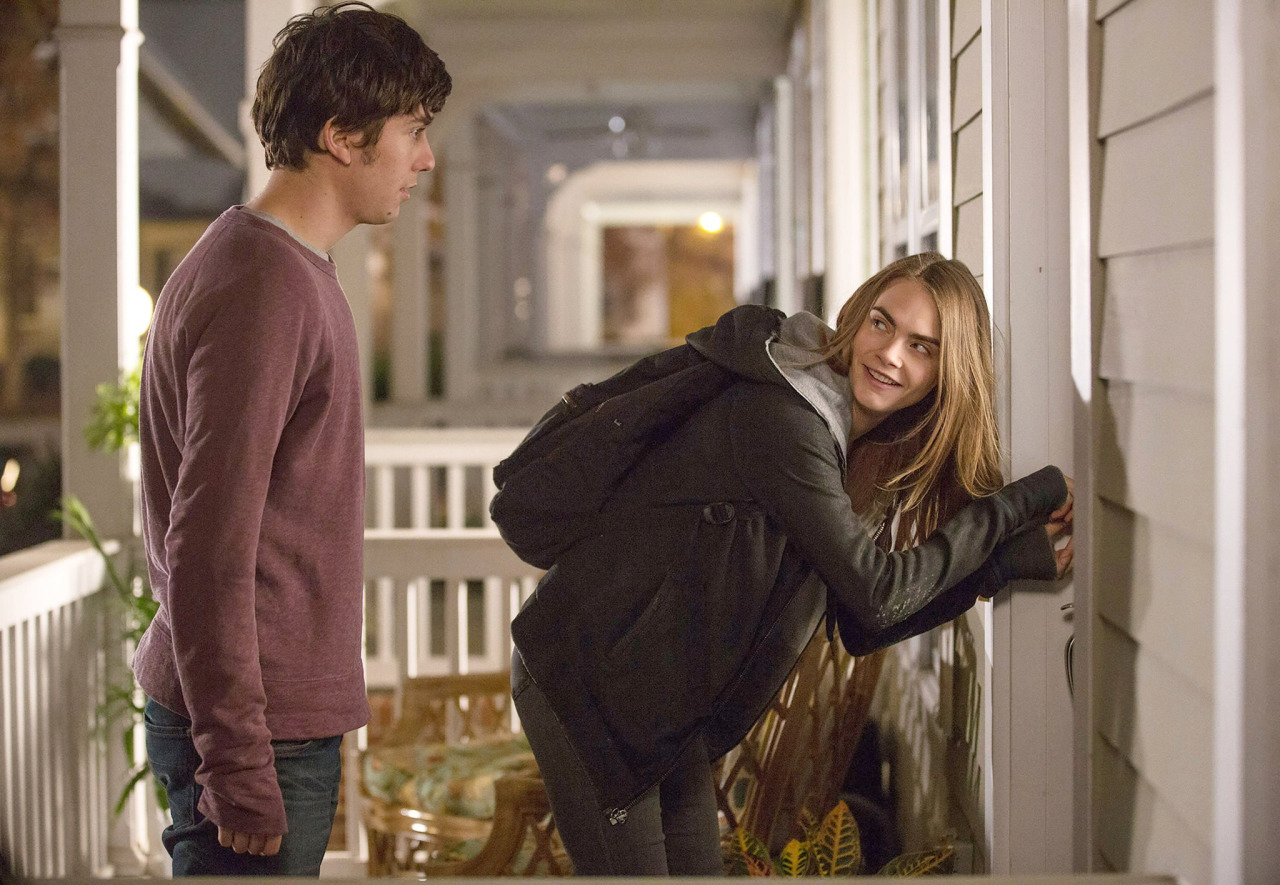

John Green purists may very well find themselves a little bothered by the ways in which this cinematic adaptation deviates from Green's original text, though Green has been outspoken in his support of the film and his admiration for the ways in which Weber and Neustadter maintained the central themes contained within his novel. One night, Margo shows up back at Quentin's bedroom window as she had done so many nights before when they were children, and invites him to accompany her on yet another adventure to "right some wrongs and wrong some rights." This time, Quentin says "Yes." From that day forward, Quentin followed his expected life path as a band geek and mostly unnoticed nered while Margo grew into a beautiful and mysterious young woman existing mostly as her high school's living legend of sorts.

Despite appearing to be never less than approachable, Quentin (Nat Wolff) never really approaches her after having lost that right several years earlier after refusing to follow her in solving a neighborhood mystery as young children.

Paper Towns exists in a world where even the most idealized character, in this case one Margo Roth Spiegelman (Cara Delevingne), is both remarkably approachable and seemingly larger than life in her role as the queen bee of an Orlando high school. Green doesn't write in Breakfast Club like stereotypes, but instead he seems to want to make us realize that the labels that we so easily place upon ourselves and others really do nothing more than place unnecessary limitations on ourselves and the world in which we live. Paper Towns tells an arguably more laid back story, a story that doesn't toss in unnecessary histrionics or dramatic false notes. Paper Towns may be a harder sell than The Fault in Our Stars, Green's first novel adapted for the big screen that benefited from the presence of rising star Shailene Woodley and an inherently more dramatic and sympathetic story to tell. Weber and Scott Neustadter ( 500 Days of Summer, The Fault in Our Stars) have rather stunning instincts when it comes to depicting the lives of those on the cusp of young adulthood. It had to be rather satisfying for Green when he finally sat down to watch Paper Towns, directed by Jake Schreier (Robot & Frank), a film that exists in a world where teenagers are actual human beings who transcend their teenage stereotypes partly due to Green's insatiable curiosity about the human experience and partly due to the fact that Paper Towns' scribes Michael H. It's no secret that Indiana-based author John Green isn't particularly fond of the "YA" or "Young Adult" label to which so much of his writing has been so easily, and rather lazily, assigned.


 0 kommentar(er)
0 kommentar(er)
